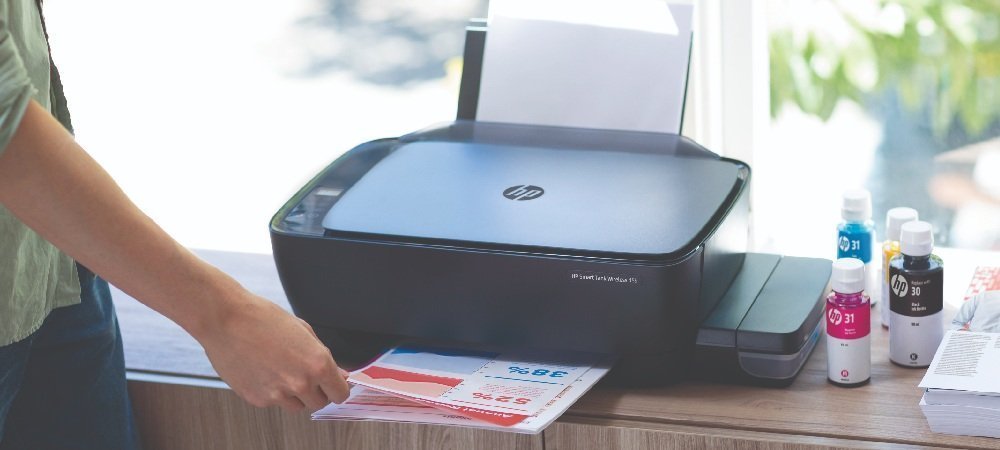Thank you for visiting the INDIA HP Store
-
Contact Us
CONTACT USCall us
- Home customers
- 1800 108 4747
- Business customers
- 1800 108 4746
- Technical support
- 1800 258 7170
Mon-Sat 9.00am - 7.00pm
(exc. Public Holidays)
Chat with us- Sales
- 18335950700 (WhatsApp)
-

Mon-Sat 9.00am - 7.00pm
(exc. Public Holidays)
Live product demo
HP World Locate our stores - Location
- My Account
What is the Average Lifespan of a Computer?


An ageing computer isn’t ideal for a number of reasons, from snail-paced multi-tasking to lengthy bootup times and perilously outdated security. The associated lost productivity – not to mention frustration – will cost you dearly in the long run, so there comes a time every PC owner must upgrade.
But how many years can you expect from the average computer lifespan? And how do you know when it’s time to upgrade?
In this post, we’re answering these critical questions and providing actionable advice on how to prolong the lifespan of your computer.
Why computers age?
Like the car in your garage, a computer will degrade from everyday wear and tear. Delicate hardware such as the motherboard and RAM take a beating from prolonged exposure to intensive heat. Components with moving parts like the hard disk drive (HDD) inevitably grind away.
Then there’s the risk of human-induced mishaps, such as dropped laptops and water-damaged keyboards.
Even if you take meticulous care of your prized machine, it’ll eventually become obsolete. Despite the hardware running flawlessly, it’ll struggle to keep up with the latest, resource-intensive operating systems, applications, and games.
Should your immaculately maintained, albeit ageing, computer still handle essential tasks, you’ll eventually stop receiving updates and support. Developers cease providing security updates for outdated operating systems, which leaves you vulnerable to nasty viruses and hacks.
While a seldom-used and well-maintained computer could, theoretically, continue working for decades, its practical lifespan is usually between three to eight years.
The average lifespan of a laptop
There are plenty of variables, but you can expect a well-maintained laptop to last for three to five years.
The laptop lifespan is shorter than a desktop PC due to its compact stature. Tightly packed components are prone to overheat and challenging to upgrade – obsolescence kicks in more quickly. Another crucial consideration is the battery, which diminishes with every charge.
Moreover, laptops are likely to be mistreated due to their portability. From cracked screens to dented chassis and water damage, these machines easily succumb to the rigours of the road.
The average lifespan of a desktop computer
So how long do computers last? Every situation is different, but you can expect the average desktop PC to last between three and eight years.
Desktops tend to kick on longer than laptops due to the extra space inside the box. With added airflow and easy access to upgrade individual components, the PC user can squeeze more life out of their machine.
Of course, its stationary nature helps prolong the average desktop lifespan. As you won’t be lugging it around town, there’s little risk of unintentional damage. Just be sure to store drinks well away from the tower and keep on top of your dusting game.
How much does it cost to replace a computer?
The oft-quoted cliché “how long is a piece of string” springs to mind.
The cost of replacing a computer varies widely depending on your required specs. While a cloud-based Chromebook might only set you back 30,000₹, a top-of-the-line gaming PC can cost ten times that figure.
As a rule of thumb, a PC will be cheaper than a laptop with similar specs because the manufacturer doesn’t have to cram lots of hardware into a confined space.
Signs you might need a new computer
Not sure whether it’s time for an upgrade? Keep an eye out for the following tell-tale signs.
Not all these issues warrant a brand new PC. Where appropriate, we’ll offer affordable alternatives that could avoid you forking out for a costly upgrade.
Outdated OS and apps
The latest version of Windows (or any operating system) will put ever-increasing pressure on your hardware. While the difference between each version isn’t huge, an old computer will eventually fail to meet the minimum requirements.
When that happens, you’ll have no choice but to use an outdated operating system or app, which will eventually stop receiving critical security updates and support. That leaves you susceptible to poor performance and a broad range of security vulnerabilities.
Sluggish multi-tasking
If your computer struggles to run simultaneous applications or browse multiple tabs, it might be time to upgrade. As poor multi-tasking performance is a massive productivity killer, a replacement computer could rapidly pay for itself.
However, the usual suspect is insufficient RAM, which you can rectify by adding more. It’s also worth running a system defrag or reformat to rule out data storage/software issues.
Slow start-ups
Agonisingly slow bootup and shutdown times are a tell-tale sign your computer isn’t performing at its peak. Not only is a slow start-up time-consuming, but it causes immense frustration and lowers employee morale when it occurs in a corporate environment.
A common, non-hardware-related cause is too many applications loading automatically upon booting your device. By reducing the number of auto-load apps, you could slash the start-up waiting time.
Poor application performance
If one or more of your software applications performs poorly or takes too long to load, it could mean your hardware isn’t up to the job. Review the application’s hardware requirements and compare them to what’s inside your machine. Barely meeting the minimum requirements often equates to a substandard user experience.
The latest software versions typically have more demanding hardware requirements than previous releases. That’s why a program that once worked perfectly in the past may perform poorly now. Consider downgrading to an older version to speed up the experience.
A noisy fan
It’s normal for a fan to whirl ferociously during processing-intensive tasks. But if it makes a tremendous racket during light use, that could signify your computer’s impending demise.
An overworked computer will get extremely hot, and its fan automatically ramps up to compensate. Excessive noise indicates your hardware is working overtime to keep up with demand.
Is it better to upgrade or replace a computer?
Many modern computers – laptops and desktops – can be upgraded to extend their practical lifespan. From additional RAM to rapid SSD storage or a powerful new GPU, these targeted upgrades can give your ageing PC some much-needed extra oomph.
While such upgrades are often worthwhile, it’s wise to weigh them up against the cost of a brand-new machine. If your computer needs a lot of new hardware, you’re probably better off shopping for a replacement.
Furthermore, some components, such as the motherboard, aren’t easy to upgrade. Although not impossible, you’ll likely need assistance from a professional technician. The cost of labour could quickly render an upgrade financially unviable.
Is it better to repair or replace a computer?
Should an individual component stop functioning correctly, there’s a good chance you can repair it rather than replace the entire computer.
The economic viability depends on the damaged component. A cracked screen, for example, is an expensive fix for parts and labour, so it’s probably not worth it for a cheap laptop. However, for a late-model, state-of-the-art laptop, the cost of a new machine will far outweigh the repair bill.
If your computer is near the end of its practical lifespan, think twice about fixing it. Chances are you’ll need to upgrade your PC soon anyway, so you could save money by replacing it now.
Another crucial consideration is the cost of separating from your work machine. Many repairers will take weeks or months to service your computer. The lost productivity associated with being away from your device can add up fast.
How to prolong the lifespan of your computer
Prevention is better than cure, so take these steps to offset the need to upgrade, repair, or replace your PC.
Dusting
Laptops and desktops are susceptible to dust, which clogs the fans and causes overheating issues. Store your computer at an elevated level with good airflow, and periodically vacuum the vents from the outside.
On or off
Leaving a computer on 24/7 wears down its components and degrades the LCD panels. However, booting it up emits a potent power surge.
People who use their PC daily are usually better off leaving it on permanently, preferably in sleep mode. The intermittent user should turn off their computer after each session.
Disk defrag and reformat
Many performance issues can be resolved with a disk defrag or a complete system reformat. Back up your important data beforehand in case anything goes wrong.
Another poor performance culprit is a ram-packed hard disk drive. Aim to keep 10-20% of your entire hard drive free.
Humidity
Water and high relative humidity can damage delicate electrical components. Take great care with your drinks and immediately wipe up any spills on the outside of the case.
If you live in a humid environment, consider investing in a dehumidifier. Also, try to avoid severe temperature swings to minimise condensation.
Temperature control
Most computers function with a safe operating temperature between 10 and 35°C. Using your PC outside this range may damage its components.
Regardless of the weather, always keep your computer out of direct sunlight.
Careful handling
Be mindful of wayward crumbs and greasy fingers when eating at your desk.
As laptops are prone to drop damage, take great care when moving it around and always use a well-padded carry bag.
Battery maintenance
It’s okay to keep your laptop plugged in 24/7. Just ensure it’s not running hot while charging.
When you’re out and about, aim to keep the battery between 40% and 80%. Avoid running it down completely flat to maintain a laptop with a long battery life.
How long do PCs last?
The average desktop computer will last between three and eight years (or three to five for a laptop).
With proper maintenance and the occasional well-planned upgrade, there’s no reason why your PC shouldn’t live until the upper limit of that range. Follow our advice on caring for your computer to reduce the likelihood of needing a costly replacement anytime soon.
- Home customers
- 1800 108 4747
- Business customers
- 1800 108 4746
- Technical support
- 1800 258 7170
Mon-Sat 9.00am - 7.00pm
(exc. Public Holidays)
- Sales
- 18335950700 (WhatsApp)
-

Mon-Sat 9.00am - 7.00pm
(exc. Public Holidays)
Live product demo














